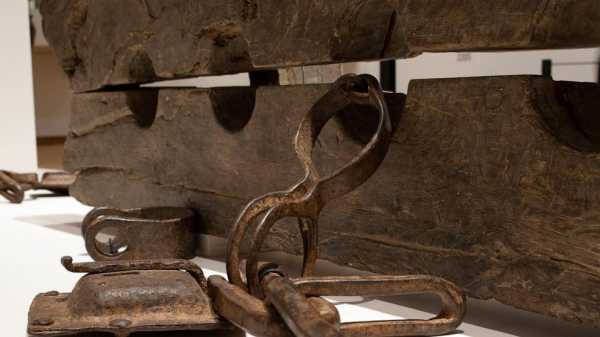
AMSTERDAM — Dutch King Willem-Alexander is set to deliver a speech Saturday to commemorate the anniversary of the country abolishing slavery, amid speculation that he could offer an apology on behalf of the royal house.
The king’s speech follows Dutch Prime Minister Mark Rutte's apology late last year for the country’s role in the slave trade and slavery. It is part of a wider reckoning with colonial histories in the West that have been spurred in recent years by the Black Lives Matter movement.
Slavery was abolished in Suriname and the Dutch colonies in the Caribbean on July 1, 1863, but most of the enslaved laborers were forced to continue working on plantations for a further 10 years. Saturday's commemoration and speech mark the start of a year of events to mark the 150th anniversary of July 1, 1873.
Research published last month showed that the king’s ancestors earned the modern-day equivalent of 545 million euros ($595 million) from slavery, including profits from shares that were effectively given to them as gifts.
When Rutte apologized in December for the Netherlands’ historic role in slavery and the slave trade — an apology that also included the royal house — he stopped short of offering compensation to descendants of enslaved people.
Instead, the government is establishing a 200 million-euro ($217 million) fund for initiatives that tackle the legacy of slavery in the Netherlands and its former colonies and to improve education about the issue.
That isn't enough for some in the Netherlands. Two groups, Black Manifesto and The Black Archives, organized a protest march before the king's speech Saturday under the banner “No healing without reparations.”
“The apology is an important historical step, but not enough. Descendants of enslaved people have the right to reparations,” march organizers said in a statement.
The Netherlands’ often brutal colonial history has come under renewed and critical scrutiny in the aftermath of the killing of George Floyd, a Black man, in the U.S. city of Minneapolis on May 25, 2020, and the Black Lives Matter movement.
A groundbreaking 2021 exhibition at the national museum of art and history took an unflinching look at slavery in Dutch colonies. In the same year, a report described the Dutch involvement in slavery as a crime against humanity and linked it to what the report described as ongoing institutional racism in the Netherlands.
The Dutch first became involved in the trans-Atlantic slave trade in the late 1500s and became a major trader in the mid-1600s. Eventually, the Dutch West India Company became the largest trans-Atlantic slave trader, according to Karwan Fatah-Black, an expert in Dutch colonial history and an assistant professor at Leiden University.
Authorities in the Netherlands aren't alone in saying sorry for historic abuses.
In 2018, Denmark apologized to Ghana, which it colonized from the mid-17th century to the mid-19th century. King Philippe of Belgium has expressed “deepest regrets” for abuses in Congo. In 1992, Pope John Paul II apologized for the church’s role in slavery. Americans have had emotionally charged disputes over taking down statues of slaveholders in the South.
In April, King Charles III for the first time signaled support for research into the U.K. monarchy’s ties to slavery after a document showed an ancestor with shares in a slave-trading company, a Buckingham Palace spokesperson said.
Charles and his eldest son, Prince William, have expressed their sorrow over slavery, but haven’t acknowledged the crown’s connections to the trade.
During a ceremony that marked Barbados becoming a republic two years ago, Charles referred to “the darkest days of our past and the appalling atrocity of slavery, which forever stains our history.” English settlers used African slaves to turn the island into a wealthy sugar colony.
___
Mike Corder reported from Ede.
Sourse: abcnews.go.com






